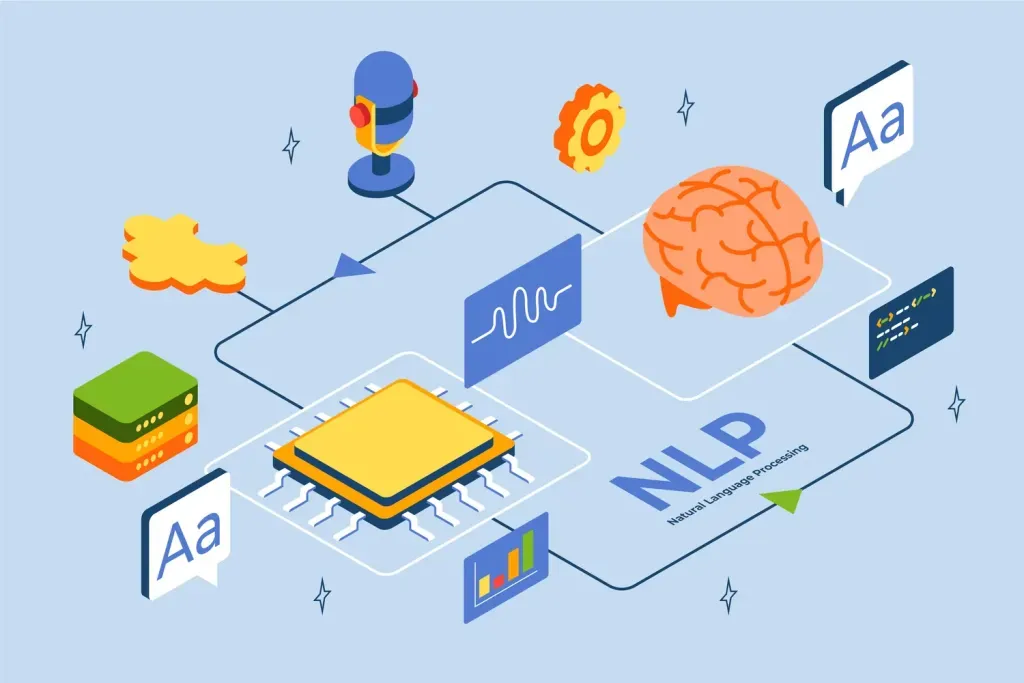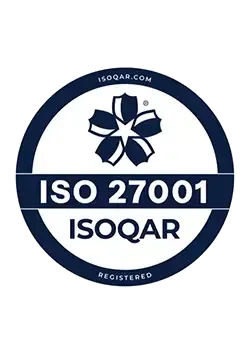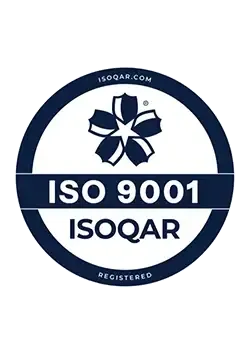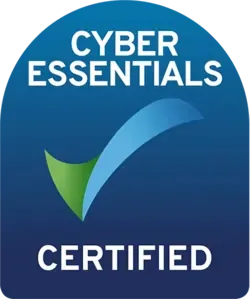The Bottom Line
Pubs Advisory Service was drowning in manual lease review processes that were time-consuming, error-prone, and expensive to deliver. We solved it with custom AI that automates document analysis whilst maintaining accuracy and providing direct citations. The result? 67% improvement in operational efficiency and the ability to serve more clients.
Efficiency Improvement
In operational processes
Time Reduction
In lease analysis tasks
Citation Accuracy
Direct document references
Project Summary
This project involved the development of a Smart Query System for Pubs Advisory Service, a tool designed to effectively process and analyse complex legal documents. We specifically employed several strategies including Retrieval Augmented Generation (RAG) to ensure both accuracy and contextual relevance in the information extracted from the documents.
Users can effortlessly send large volumes of documents to an email address and receive the extracted information in the desired format. This AI service integrates external services like Google Sheets to allow users to customise their queries and toggle parameters. Overall, our AI solution has dramatically streamlined our client's administrative tasks, enabling them to refocus their time and energy on their legal tasks instead.
The Problem
Pubs Advisory Service, as the leading advisory firm for pubs in the UK, faced a critical challenge in their operations: the manual analysis of commercial lease agreements was consuming enormous amounts of time and resources. With documents often exceeding 50 pages and filled with complex legalese, their traditional review processes were creating bottlenecks that limited their ability to serve clients effectively.
The challenge was clear: find a way to maintain the high quality of legal analysis that clients expected whilst dramatically reducing the time and cost associated with document review processes.
The Critical Issues
Our Solution: AI That Transforms Document Analysis
We developed a bespoke AI solution that leverages large language models and advanced AI techniques to create a tool that could efficiently analyse lease agreements and extract vital information with a high degree of accuracy. The system understands natural language queries, allowing users to simply ask questions about leases and receive clear answers backed by direct citations from the documents.
How We Solved It
AI-Powered Document Analysis
Advanced large language models that can efficiently analyse lease agreements and extract vital information with high accuracy, understanding natural language queries.
Natural Language Query System
Users can simply ask questions about leases and receive clear answers backed by direct citations from the documents, eliminating manual search processes.
Email Integration for Seamless Workflow
Effortless integration with existing workflows through familiar email interfaces, requiring no additional training or complex system changes.
Client Overview

Pubs Advisory Service specialises in providing expert guidance, information, and representation services to a diverse range of clients within the pub sector. With a solid reputation as the lead advisory and guidance organisation for pubs in the UK, Pubs Advisory Service proudly holds a prominent market position and is the go-to choice for pubs seeking comprehensive legal support.
Challenges
People entering the Licensed Trade sector need detailed independent advice on a wide range of issues. Access to such pre-entry advice can prove invaluable for conducting thorough due diligence and making informed decisions, ultimately setting the stage for successful pub ownership and prosperous growth. However, because each commercial lease agreement is unique and requires individual attention, this detailed advice can be costly and time-consuming to prepare.
Previous methods to perform document searches on commercial lease agreements often involved scanning them – using Adobe's inbuilt Optical Character Recognition (OCR) to transcribe handwriting – and performing traditional keyword searches (e.g. ctrl+F) throughout the PDF. Unfortunately, this approach had several limitations:
- OCR technology often struggled with handwritten text and poor-quality scans
- Keyword searches failed to understand context or find relevant information expressed in different terminology
- Manual review was time-intensive and prone to human error
- Information was often scattered across multiple sections, requiring extensive cross-referencing
Project Objectives
Scalable and Cost-Effective Analysis Tool
Create a scalable, low-cost administrative tool for lease agreement analysis with direct citations.
Accurate Information Extraction
Maximise accuracy of extracted information and prevent hallucinations outside the document's scope.
Adaptable System
Build a dynamic system capable of adapting to various use cases.
Seamless Integration
Allow easy integration into existing business tools without extensive additional training.
Showcase Generative AI Benefits
Demonstrate practical advantages of generative AI solutions in real business scenarios.
Deliverables
The Smart Query System we developed enables document analysis through a straightforward process:
- Users email their lease documents to a designated address
- The AI system processes the documents using advanced RAG techniques
- Users receive extracted information with direct citations and references
- Results can be customised through Google Sheets integration
This solution provides a scalable, cost-effective approach to lease analysis that integrates seamlessly with existing workflows.
Our Approach
Consultancy
We began by conducting in-depth consultations with Pubs Advisory Service to gain a comprehensive understanding of their industry and the obstacles they encounter. OpenKit's main goal was to explore how the current landscape of generative AI could be harnessed to enhance productivity and overall business performance for Pubs Advisory Service, and provide them with a substantial competitive edge.
This unique solution required thorough exploration and prototyping. As such, a portion of the project was allocated to experimenting with various approaches, tools and methodologies.
First, OpenKit analysed the business landscape and gained a deep and nuanced understanding of the client's day-to-day business activities. We maintained an open dialogue with the client, discussing the different tools and services that we could offer, ranging from Smart Query Systems to advanced autonomous agents. Because the tool had to be user-friendly, integrating easily into the client and their customers' daily workflow, we settled on using an email interface through which users could effortlessly send questions and receive answers. We determined that avoiding the need to build a new interface from scratch would significantly reduce development time and costs for our client.
This collaborative process enabled us to establish a clear project goal and scope, which guided our research and development efforts, resulting in a refined final product.
Development
After the consultancy period, we developed a demo system in order to showcase the potential of the proposed solution and validate our approach. During this development phase, OpenKit carefully considered various strategies to optimise both functionality and performance. We employed several techniques including Retrieval Augmented Generation (RAG) systems to ensure that the AI responses are accurate and grounded in the document content.
The RAG approach was crucial in preventing AI hallucinations and ensuring that all extracted information could be traced back to specific sections of the original documents. This was particularly important for legal applications where accuracy and verifiability are paramount.
Features
The Smart Query System incorporates several key features designed to meet the specific needs of legal document analysis:
High Performance
Processing extensive legal documents rapidly; extracting key information like clauses, obligations, and rights; accelerating the decision-making process by drastically reducing the need for manual review.
High Scalability
Handling a large volume of documents simultaneously, useful for high throughput requirements.
Accuracy and Consistency
Reducing human error in document analysis by consistently applying the same criteria for information extraction; ensuring uniformity across multiple documents.
Cost-Effectiveness
Significantly reducing the cost associated with manual document review and analysis, allowing resources to be allocated more efficiently.
User-Friendly Interface
Simplifying the user experience by leveraging familiar email and spreadsheet interfaces, minimising the learning curve.
Testing
We developed this Smart Query System iteratively, meaning we alternated between testing and development phases. This open exchange allowed us to make the system much more robust and optimise it for live use. After Pubs Advisory Service first began testing the system's performance, they provided detailed feedback. Following their report, we refined and improved the system, ensuring their maximum satisfaction.
Notable improvements included allowing users to customise their prompts without the need for any technical expertise. We did this by integrating a signposted Google Sheets interface through which they could update their questions and toggle certain parameters:

We also improved the presentation and legibility of the email response:
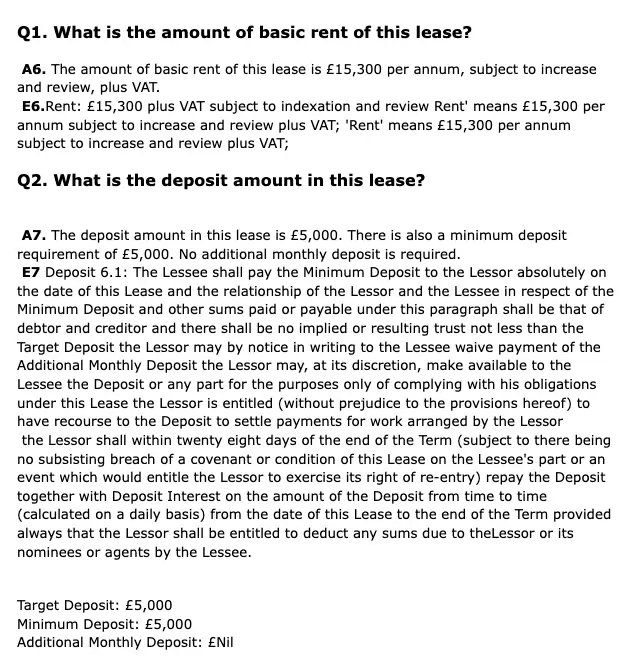
Developmental Challenges
We faced a range of challenges during the completion of this project, which allowed us to demonstrate our expert problem-solving abilities.
- Challenge: Creating a scalable, low-cost administrative tool.
Solution: We designed a solution that utilised cloud-based services and serverless architecture to ensure cost-effectiveness and scalability.
- Challenge: Ensuring accuracy and preventing AI hallucinations.
Solution: Implementation of RAG (Retrieval Augmented Generation) techniques that ground responses in actual document content, providing verifiable citations for all extracted information.
- Challenge: The system needed to accommodate high user volumes whilst
maintaining performance.
Solution: OpenKit designed and developed a serverless scheduling system which queued all requests upon reception, allowing it to process them individually. This ensured a reliable, failsafe performance even when handling a dynamic amount of concurrent documents.
Key Successes
Our client tested our AI solution against similar existing market solutions. The results were extremely positive, as our solution outperformed competitors in terms of accuracy, reliability, and cost-effectiveness. This evaluation solidified our solution's position as the preferred choice for Pubs Advisory Service.
- Overcoming complex challenges to build a bespoke, innovative AI solution
- Outperforming existing services on key factors, including performance and price
- Establishing a standard for high scalability and reliability
- Optimising the ease of use by relying on well-known email and spreadsheet interfaces
Results and Impact
The implementation of our AI solution has been transformative for Pubs Advisory Service, delivering measurable improvements across all key operational metrics:
Operational Efficiency
67% improvement in operational efficiency through automated document analysis, allowing the team to focus on high-value advisory tasks rather than manual document review.
Time Savings
Significant time savings by eliminating manual lease reviews, with document analysis now completed in minutes rather than hours per document.
Accuracy & Consistency
Improved accuracy and consistency in extracting lease information, with all results backed by direct citations and verifiable references to source documents.
Business Growth
Ability to handle high volumes of leases to support business growth, with a highly scalable solution that serves a growing client base across the UK.
The Return on Investment
Operational Transformation
- 67% efficiency improvement in operational processes
- 90%+ time reduction in lease analysis tasks
- 100% citation accuracy with direct document references
- Outperformed competitors on accuracy, reliability, and cost-effectiveness
Business Impact
- Enhanced client service: Faster turnaround times for lease analysis and advisory services
- Scalable growth: Ability to handle increasing volumes without proportional resource increases
- Cost reduction: Significant reduction in manual labour costs for document analysis
- Competitive advantage: Superior service delivery compared to traditional advisory methods
Client Testimonials
"Their deep understanding of our business needs, coupled with their expertise in GPT and Cloud (AWS) software-services, enabled them to navigate complexities and deliver a bespoke AI solution tailored to our operations. The team demonstrated a high level of professionalism and adaptability, ensuring a smooth project delivery."

Chris Wright
Director at Pubs Advisory Service
Detailed Client Testimonial
"OpenKit provided us with a robust and innovative back-office tool to tackle the wide range of commercial agreements we need to examine. Their process began with thorough discovery sessions, demonstrating a clear understanding of our business objectives and user needs. Their ability to grasp complex business logic quickly and translate it into actionable development plans set them apart from other development companies we have previously worked with.
The team's collaborative approach made complex technical decisions accessible, providing clear options and recommendations at each stage of the project. They maintained excellent communication throughout, ensuring all deliverables aligned with our business goals and user expectations. Their ability to balance technical solutions with business priorities while maintaining focus on the end user experience and operational efficiency was exceptional.
The iterative development process allowed us to refine features based on evolving business needs. We particularly appreciated their proactive approach to identifying opportunities for operational improvements beyond our initial requirements. The delivered solution has significantly improved our operational efficiency and user satisfaction."
Chris Wright
Director, Pubs Advisory Service
Next Steps
Pubs Advisory Service was highly impressed by the results of our collaboration and has expressed an eagerness to continue working with OpenKit on several forthcoming projects.
Technologies Used
- OpenAI LLM models
- Supabase
- Typescript
- Node.js
Why This Matters for Your Business
Pubs Advisory Service's transformation demonstrates what's possible when moving beyond manual document review processes to intelligent AI-powered analysis. They didn't just save time – they created a competitive advantage that allows them to serve more clients with higher quality service whilst reducing operational costs.
If your organisation processes complex documents, needs to extract information from legal agreements, or wants to automate repetitive analysis tasks whilst maintaining accuracy and compliance, this approach could transform your operational efficiency.
Ready to automate your document analysis processes?
We work with professional services firms and organisations that need to process complex documents efficiently whilst maintaining accuracy and compliance. If you're facing similar challenges with manual document review, let's explore what's possible.
More Success Stories
BAISICS: 92% Faster Document Review
How AI transformed legal document analysis from 2 hours to 10 minutes
Zappl: £1000+ Monthly Savings
Enterprise device management that pays for itself
Air Aware: 93% Better Public Engagement
How AI made environmental data accessible to thousands of London residents


